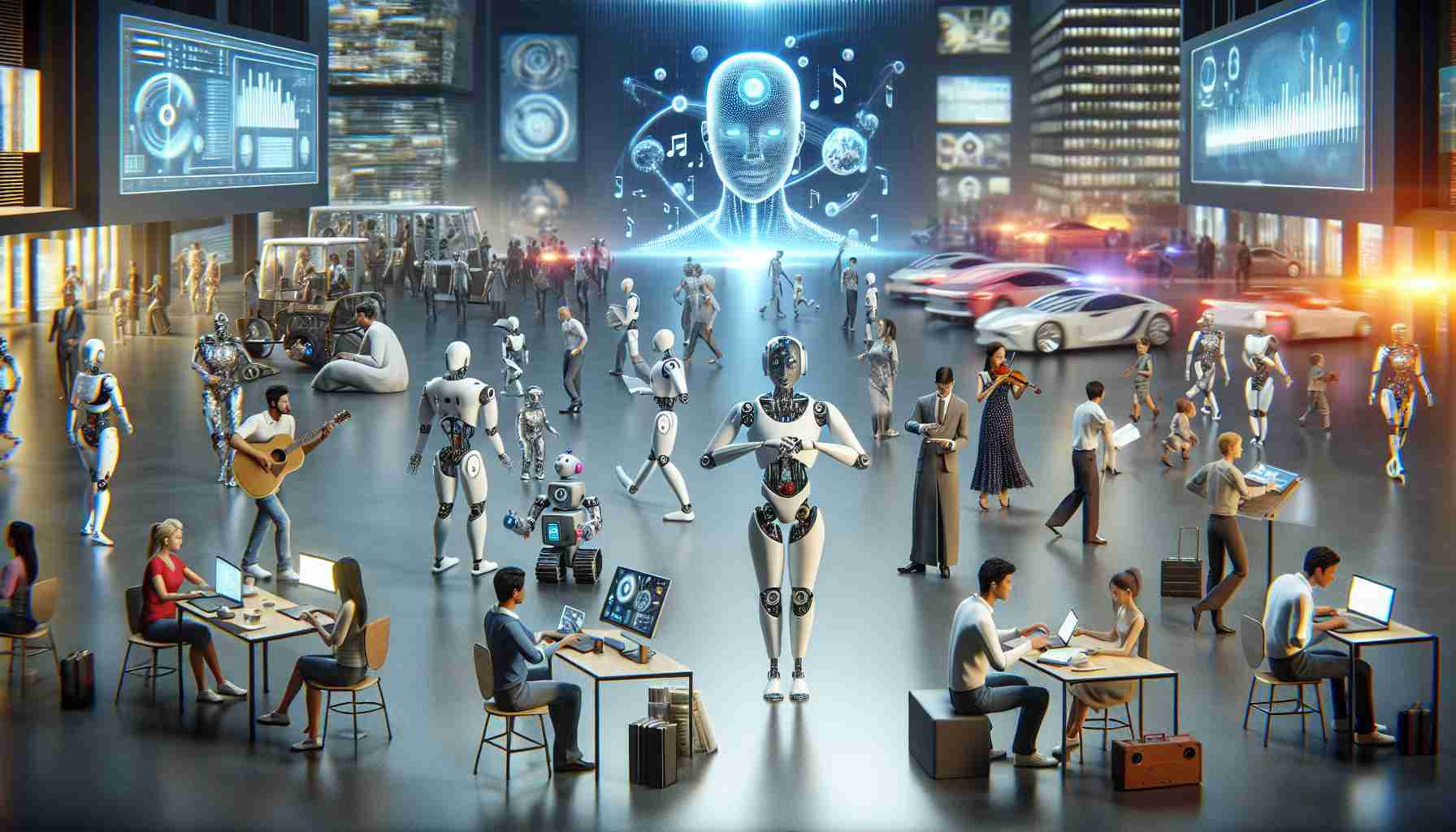The Impact of Advanced Technology on Human Existence
As technology continues to advance, concerns about the potential disasters that machines or artificial intelligence (AI) might bring to humanity have been a topic of discussion for centuries. While many dystopian movies depict scenarios related to AI systems, the underlying worries stem from the unknown nature of AI and its implications for the future.
Changing Dynamics in the Age of Artificial Intelligence
Recent apprehensions expressed by experts in the tech industry and AI specialists highlight the potential risks associated with AI development. The idea that AI could lead to humanity’s downfall has sparked debates on how to regulate and monitor AI progress effectively. Prominent figures like Elon Musk have even suggested that there is a chance AI could pose a threat to human existence.
The Evolution of AI and Its Societal Ramifications
From weak artificial intelligence to the prospect of superintelligent AI, concerns about job displacement and societal upheavals have been raised. As AI continues to evolve, questions arise about the control and ethical implications of allowing AI systems to surpass human intelligence levels.
Rethinking AI Development Amid Technological Breakthroughs
Despite the swift advancements in AI capabilities, limitations in data availability have been identified as a bottleneck for further development. This slowdown in progress serves as a reminder of the complexities involved in AI evolution and the need for responsible innovation.
The Ethical Considerations Surrounding AI Implementation
Debates surrounding the militarization of AI, particularly in controlling nuclear weapons, raise ethical dilemmas and underscore the importance of establishing ethical guidelines for AI applications in sensitive areas. The potential for malicious actors to exploit AI technology for destructive purposes amplifies the urgency for ethical AI governance frameworks.
The Shift in Information Dissemination and Civilizational Challenges
AI’s potential to manipulate information, create deepfakes, and disrupt traditional communication norms poses significant challenges to human civilization. The rapid pace of AI development raises questions about the societal repercussions of widespread job automation and the need for proactive adaptation to the impending changes.
In conclusion, the transformative power of AI presents a dual challenge of innovation and ethical responsibility. As society navigates the complex landscape of AI development, a balanced approach that prioritizes ethical considerations and long-term implications is essential for shaping a future where AI benefits humanity without compromising its values.
The Multifaceted Impact of Artificial Intelligence on Society
As society delves deeper into the realm of artificial intelligence (AI), various crucial questions emerge, shedding light on both the potential advantages and drawbacks of AI integration into daily life. Let’s dive into some unexplored facets of how AI influences society.
Key Questions:
1. How can AI contribute to enhancing healthcare systems globally?
2. What role does AI play in addressing environmental issues and promoting sustainability practices?
3. Are there effective strategies in place to mitigate biases in AI algorithms and decision-making processes?
4. How can governments adapt policies to regulate AI applications ethically and effectively?
5. In what ways does AI impact jobs and employment patterns across different industries?
Answers and Challenges:
1. AI holds the promise of revolutionizing healthcare through advanced diagnostics, personalized treatment plans, and efficient patient care management. However, ensuring data security, patient privacy, and integrating AI seamlessly into existing healthcare frameworks remain significant challenges.
2. From optimizing energy consumption to predicting natural disasters, AI presents opportunities to tackle environmental challenges. Yet, concerns about the carbon footprint of AI technologies and the need for sustainable AI development practices are critical areas of focus.
3. The inherent biases in AI algorithms raise concerns about reinforcing societal inequalities. Addressing bias mitigation strategies, fostering diversity in AI development teams, and implementing transparent AI decision-making processes are vital steps in creating fair and unbiased AI systems.
4. The ethical governance of AI requires robust frameworks to safeguard against misuse and ensure accountability. Balancing innovation with regulatory measures, promoting international cooperation on AI standards, and fostering public debate on AI policies are integral to responsible AI development.
5. While AI automation enhances productivity and efficiency, it also displaces certain job roles, prompting the need for upskilling and reskilling programs for the workforce. Managing the societal impact of job displacement, promoting inclusive economic growth, and redefining labor dynamics in the AI era are critical challenges to address.
Advantages and Disadvantages:
Advantages:
– Streamlining processes, boosting productivity, and driving innovation across sectors.
– Enhancing decision-making accuracy, data analysis capabilities, and predictive modeling for informed choices.
– Improving accessibility to services, personalizing user experiences, and enabling advancements in societal well-being.
Disadvantages:
– Potential job disruptions, unequal access to AI benefits, and widening economic disparities.
– Ethical concerns around data privacy, autonomous decision-making, and the societal implications of AI biases.
– Security risks, algorithmic manipulations, and the unintended consequences of AI systems on human interactions.
In navigating the complexities of AI’s societal impact, fostering a collaborative approach among policymakers, industry experts, and the public is crucial for harnessing AI’s potential while mitigating its risks.
For further insights on AI advancements and societal implications, visit International Association for Information Systems.






















